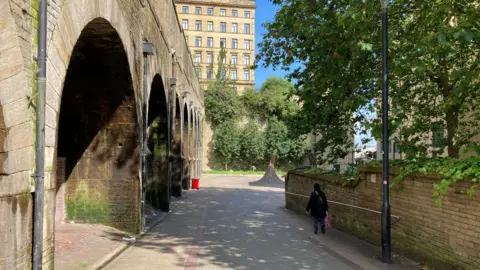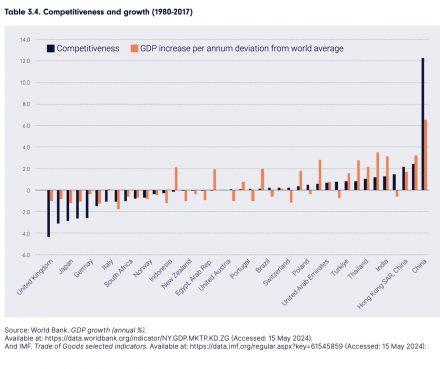As I listened to the Human League at Bristol Pride, the words from one of their songs resonated ‘I’m only human, of flesh and blood I’m made’. Those are words that we should all note when we talk about trans people.
For far too long the trans community have been dehumanised, characterised as mentally ill or a threat to women and children, a similar playbook to that used against gay men many decades ago. The Tories and right-wing media have been responsible for making the lives of trans people a living hell, as I know only too well having changed my gender from male-to-female in 2018.
With a new Labour Government it’s my hope that the culture wars might end, that NHS waiting lists will come down and that access to NHS dentistry will improve. I made the last two issues part of my campaign to successfully become the first openly elected trans woman councillor in Bristol in May 2024.
Labour have made some important promises to the LGBT+ community in the manifesto, including a fully trans inclusive ban on conversion therapy and improved access to healthcare for trans people. I’ve been an active campaigner on these issues within my home city, organising protest gatherings and appearing on local TV.
I’ll never forget the time when I had a lesbian woman addressing the crowd right in front of me, recalling how she had lost a young trans friend to suicide – when she finished speaking we hugged with tears streaming from our faces. Nothing is more powerful than personal testimony.
And so it is with dismay that I hear that Wes Streeting has vowed to continue the ban on puberty blockers introduced by the Tories as a parting gift to punch down on the trans community.
Some reality about gender transition
It took me about 40 years to come to terms with my gender issues, throughout all that time I felt a great deal of shame and stayed very much in the closet. When I did finally accept my trans identity I never looked back – it was the best decision for me and I have no regrets.
As part of my transition I’ve spent thousands of pounds on facial hair removal and private healthcare, as well as having some vocal therapy sessions, all the consequence of a male puberty.
READ MORE: Fresh party trans row as activists launches ‘alternative’ to LGBT+ Labour
I got a referral to an NHS gender identity clinic, but it took them five years to finally give me a first appointment. I regard myself as lucky to be seen, because in some regions the waiting time is much longer than this.
Fortunately we now live in more enlightened times and I find it joyous that people can come out as trans more readily and much younger. When like me you’ve talked to many, many trans people (I ran a trans pride for five years), you know that for some young trans people going through puberty can be a distressing experience.
We must remember that the number of people that identify as trans is very low, and those that identify as trans at an age lower than 16 are a miniscule proportion of the population. And it is because of my lived experience that I wholeheartedly condemn the ban on puberty blockers.
Questions that need to be asked
- Why is it acceptable for the medication used to prevent precocious puberty acceptable for this medical condition and yet unacceptable for trans kids? Do we have some special ‘trans blood’ that means the side effects are worse for us than others? Of course not, because of the same flesh and blood we’re all made. Why is it acceptable to ban puberty blockers on one cohort because of perceived harm without banning them from all?
- The Tories made trans people a wedge issue in their campaign (that went well didn’t it Rishi). People in power appoint people who will sing their tune; witness Trump’s appointment of Supreme Court judges in the USA. There are people like me who look at certain appointments and see the possibility of an inherent bias in decision making. Is the Cass report neutral and unbiased? There are many people that think the report is flawed too, including many experts in the field of trans healthcare.
- Since Victoria Atkins announced the ban on puberty blockers I am hearing more reports of young trans people that are self-harming and, disturbingly, there is also anecdotal evidence of an increase in suicide. From mental health support to improved access to trans healthcare, the new Labour Government has to act quickly to support trans people.
The number of trans people that take their own lives is shocking. When we talk about medical intervention it’s done with the intention of doing no harm. But we know that medicines and surgery have an inherent risk. At aged 15 I was advised to have my spleen removed, a huge surgical intervention.
READ MORE: Sign up to our must-read daily briefing email on all things Labour
That operation significantly improved my life but had its own consequences, making me more vulnerable to infection. Covid was a terrifying time for me, so the availability of a vaccine that was relatively untested was a huge relief.
Medicine has to be based on risk and the balance of probabilities when it comes to deciding which path to choose. For most of us a simple aspirin will help with a headache, but this common medicine has its own risks. Whatever the medical intervention, we use our own knowledge to decide what is best, knowing the risks.
Gillick Competence is a clear principle by which medical intervention for under 16s applies. There are many instances where medicines are used ‘off-label’, indeed there are even NHS leaflets for it. If young trans people and their parents aren’t capable of making decisions based on Gillick Competence then why is informed consent acceptable for some young people’s healthcare but not others?
The way forward
I would expect an incoming Labour Secretary of State for Health to be asking all the questions above.
The very real possibility of poor mental health and increased suicide rates of trans youth due to this unfathomable continuation of a spiteful Tory policy is too much for me to ignore.
The way forward for Wes Streeting isn’t just to blindly carry forward the doctrine from the outgoing Tories and their questionable Cass report, but to ask the basic questions above before making policy. I will continue to hold the Labour Party’s feet to the fire on this issue. Because trans kids’ lives are important to me.
SHARE: If you have anything to share that we should be looking into or publishing about this story – or any other topic involving Labour or the election – contact us (strictly anonymously if you wish) at mail@labourlist.org.
SUBSCRIBE: Sign up to LabourList’s morning email here for the best briefing on everything Labour, every weekday morning.
DONATE: If you value our work, please donate to become one of our supporters here and help sustain and expand our coverage.
PARTNER: If you or your organisation might be interested in partnering with us on sponsored events or content, email mail@labourlist.org.



















